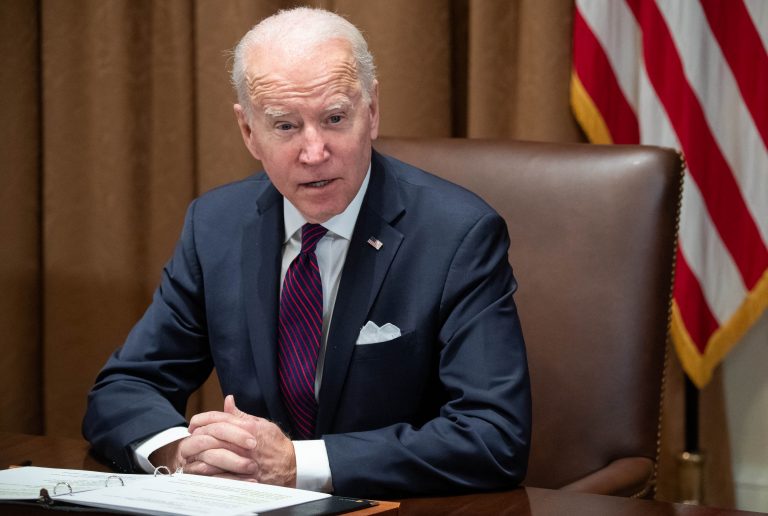President Joe Biden has warned his Ukrainian counterpart, President Volodymyr Zelensky, about an imminent invasion by Russia according to a CNN report. The warning was conveyed while the two leaders engaged in a phone call on Jan. 27. Russia has deployed over 100,000 soldiers to its borders near Ukraine, putting Kyiv as well as the United States and its allies on high alert.
A senior Ukrainian official told CNN that the phone call “did not go well.” The call, which lasted for an hour and 20 minutes, was “long and serious,” the official stated. However, the talk was also “productive” since both leaders held discussions on Russia’s recent transgressions. Biden told the Ukrainian president that Washington will not offer significantly more military aid, the official stated.
“On the call, which the Ukrainian official described as ‘long and frank’, Biden warned his Ukrainian counterpart that a Russian attack may be imminent, saying that an invasion was now virtually certain, once the ground had frozen later in February… Zelensky, however, restated his position that the threat from Russia remains ‘dangerous but ambiguous’, and it is not certain that an attack will take place,” CNN reported. Zelensky is also said to have asked Biden to “calm down the messaging” about a Russian invasion to avoid any negative economic impact.
A spokesperson of Zelensky dismissed the Ukrainian official’s characterization of the phone call between the two leaders. In a tweet, Zelensky thanked Biden for the “ongoing military assistance” and claimed that he had discussed “possibilities for financial support” with the American president.
The White House accused the anonymous Ukrainian official of “leaking falsehoods” to CNN. During the call, Biden “reaffirmed” America’s commitment to Ukraine, promising Zelensky that Washington will “respond decisively” in case Russia invaded Ukraine. The United States will also look into providing “macroeconomic support” to Ukraine, the White House stated. In the last year, the U.S. has granted Ukraine more than $500 million.
Success
You are now signed up for our newsletter
Success
Check your email to complete sign up
Emily Horne, a spokesperson for the White House National Security Council, dismissed reports that Biden had warned Zelensky of Russia soon invading Ukraine. “This is not true. President Biden said that there is a distinct possibility that the Russians could invade Ukraine in February. He has previously said this publicly & we have been warning about this for months. Reports of anything more or different than that are completely false,” Horne said in a Jan. 28 tweet.
The call between Biden and Zelensky came a day after the U.S. formally rejected Russia’s demand to prohibit Ukraine from joining NATO. The response was given via a document delivered to Moscow by the U.S. in coordination with the NATO military alliance. Sergei Lavrov, Russia’s foreign minister, said that Putin will assess the American response.
“There should be no doubt about our seriousness of purpose when it comes to diplomacy, and we’re acting with equal focus and force to bolster Ukraine’s defenses and prepare a swift united response to further Russian aggression… It remains up to Russia to decide how to respond… We’re ready either way,” U.S. Secretary of State Antony Blinken said in a statement.
Meanwhile, Ukrainian officials have expressed displeasure at America’s decision to cut down staffing at the U.S. embassy, with a spokesperson from the foreign ministry terming it a “premature step.” White House press secretary Jen Psaki called such displeasure “misplaced.” She insisted that Washington will always take decisions “that are in the security interests” of its diplomats.
“I will let others assess, but there are 100,000 Russian troops on the border of Ukraine and no clarity that the leader of Russia doesn’t intend to invade… That sounds pretty dangerous to me,” Psaki stated.
















